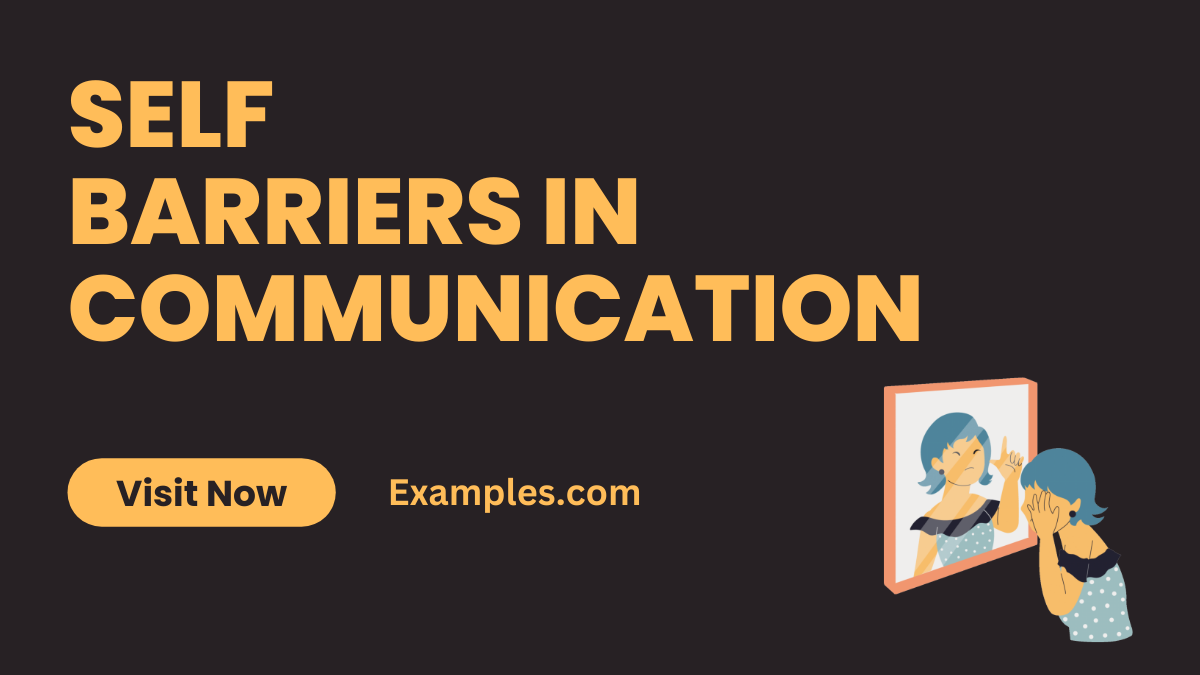Self Barriers in Communication
Self Barriers in Communication Often, the biggest hurdles in effective communication are the ones we place ourselves. Whether it’s due to self-doubt, fear, or misunderstanding, these barriers can significantly hinder our ability to connect and share information effectively. This comprehensive guide explores various aspects of self-imposed communication barriers, offering insights and practical strategies to overcome them. Dive into understanding the nuances of ‘Self Barriers in Communication’ and learn how to navigate through these challenges for more meaningful interactions.
What are Self Barriers in Communication?
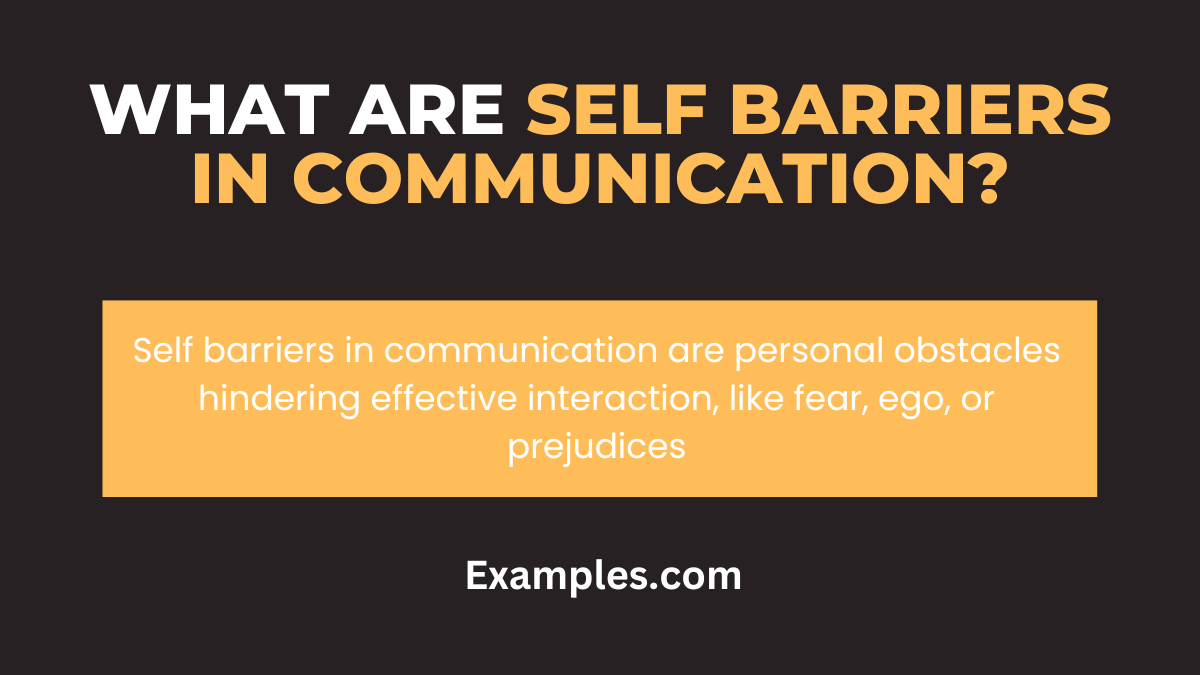
Understanding self barriers in communication involves recognizing the internal blockades that affect how we express ourselves and interpret others. These barriers stem from personal experiences, beliefs, and emotions, influencing our communication effectiveness.
What is the Best Example of Self Barriers in Communication?
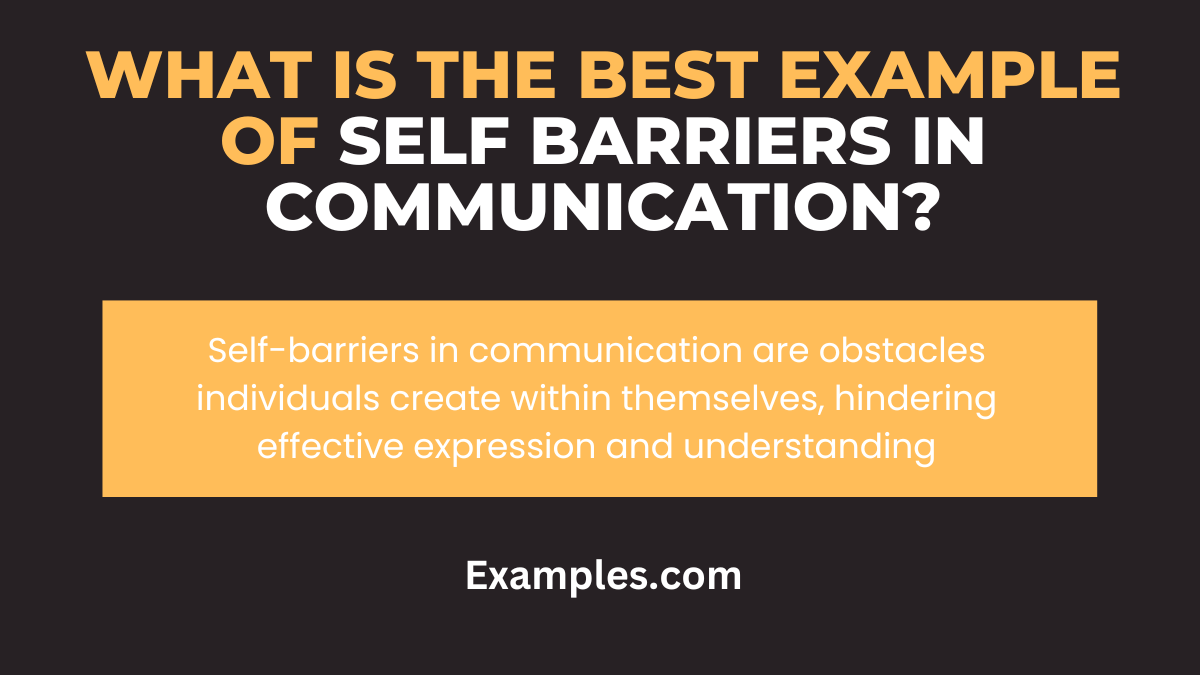
A prime example is a reluctance to express thoughts due to fear of judgment. This self-imposed barrier limits open communication, leading to misunderstandings and a lack of authentic expression.
20 Examples of Self Barriers in Communication
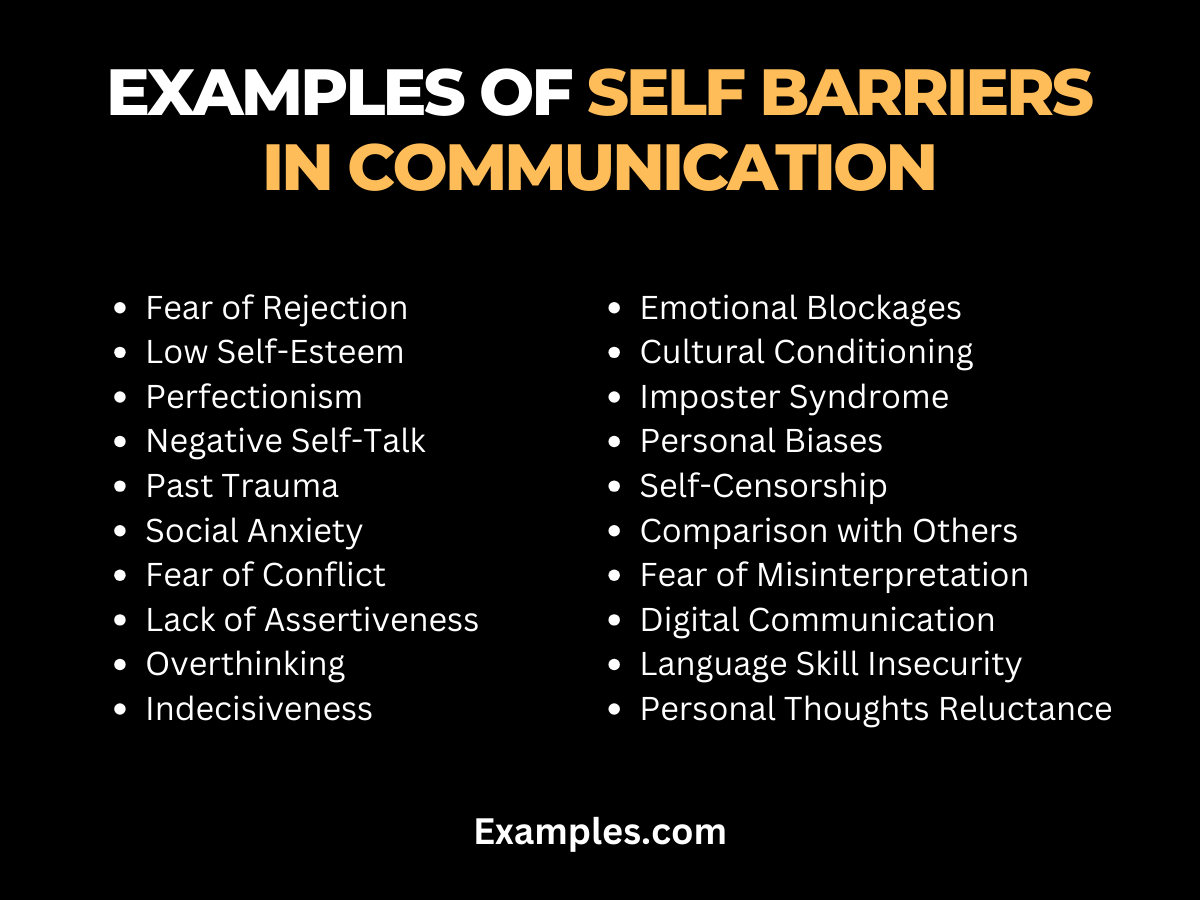
Self barriers in communication refer to internal obstacles that hinder effective interpersonal interactions. These barriers stem from personal challenges such as fear, low self-esteem, negative self-talk, and social anxieties. Overcoming these self-imposed barriers is crucial for clear, confident, and effective communication, enabling individuals to express themselves more freely and connect better with others.
- Fear of Rejection: Hesitation to speak up due to fear of being judged or rejected.
Example: “I want to share my idea, but I’m worried they’ll think it’s silly.” - Low Self-Esteem: Lack of confidence in one’s own ideas or opinions.
Example: “My thoughts probably aren’t worth mentioning.” - Perfectionism: Over analyzing before communicating, leading to delays or silence.
Example: “I can’t say this until it’s perfect.” - Negative Self-Talk: Self-critical thoughts that hinder effective communication.
Example: “I always mess up, so why bother speaking?” - Past Trauma: Previous negative experiences influencing current communication.
Example: “Last time I spoke up, I was mocked, so I’d rather stay quiet.” - Social Anxiety: Extreme worry about social situations, affecting communication.
Example: “Talking in groups makes me too anxious.” - Fear of Conflict: Avoiding conversations that might lead to disagreement.
Example: “If I say this, it might start an argument.” - Lack of Assertiveness: Difficulty in expressing thoughts and feelings directly.
Example: “I don’t want to impose my views on others.” - Overthinking: Paralysis by analysis, preventing spontaneous conversation.
Example: “What if I say something wrong?” - Indecisiveness: Inability to make quick decisions during conversations.
Example: “I can’t decide what to say.” - Emotional Blockages: Letting emotions like anger or sadness block communication.
Example: “I’m too upset to talk right now.” - Cultural Conditioning: Internalized beliefs that restrict expression.
Example: “In my culture, speaking out is frowned upon.” - Imposter Syndrome: Feeling unworthy to speak in certain situations.
Example: “Everyone here is smarter than me.” - Personal Biases: Prejudices that affect communication clarity.
Example: “They wouldn’t understand, they’re too different from me.” - Insecurity about Language Skills: Concern about language ability affecting communication.
Example: “My accent might make it hard for them to understand me.” - Reluctance to Share Personal Thoughts: Fear of exposing vulnerability.
Example: “I can’t share this, it’s too personal.” - Self-Censorship: Holding back opinions for fear of judgement.
Example: “I better not say that, it might be controversial.” - Comparison with Others: Feeling inferior to others’ communication skills.
Example: “I’ll never be as eloquent as them.” - Fear of Misinterpretation: Worry about being misunderstood.
Example: “What if they take it the wrong way?” - Over-Reliance on Digital Communication: Struggling with face-to-face interactions.
Example: “I can express myself better in texts than in person.”
How to Overcome Self Barriers in Communication?
- Self-Awareness: Recognize and understand your own communication style and biases. Acknowledging personal shortcomings in communication is the first step towards improvement.
- Active Listening: Practice active listening to better understand others’ perspectives and reduce misunderstandings.
- Emotional Regulation: Learn to manage emotions effectively to prevent them from interfering with clear communication.
- Seek Feedback: Regularly ask for constructive feedback from others to identify areas for improvement in your communication skills.
- Continuous Learning: Engage in courses, workshops, or self-study to enhance communication abilities and understand diverse communication styles.
Strategies for Self Barriers in Communication
- Mindfulness Practice: Engage in mindfulness to stay present during conversations and reduce the influence of personal biases.
- Empathy Development: Work on understanding others’ viewpoints to improve interpersonal communication.
- Clear and Concise Language: Use simple and direct language to avoid miscommunication.
- Personal Development Goals: Set specific goals for improving communication skills and track progress.
- Role-Playing Exercises: Practice various communication scenarios to enhance adaptability and response strategies.
Types of Self Barriers in Communication
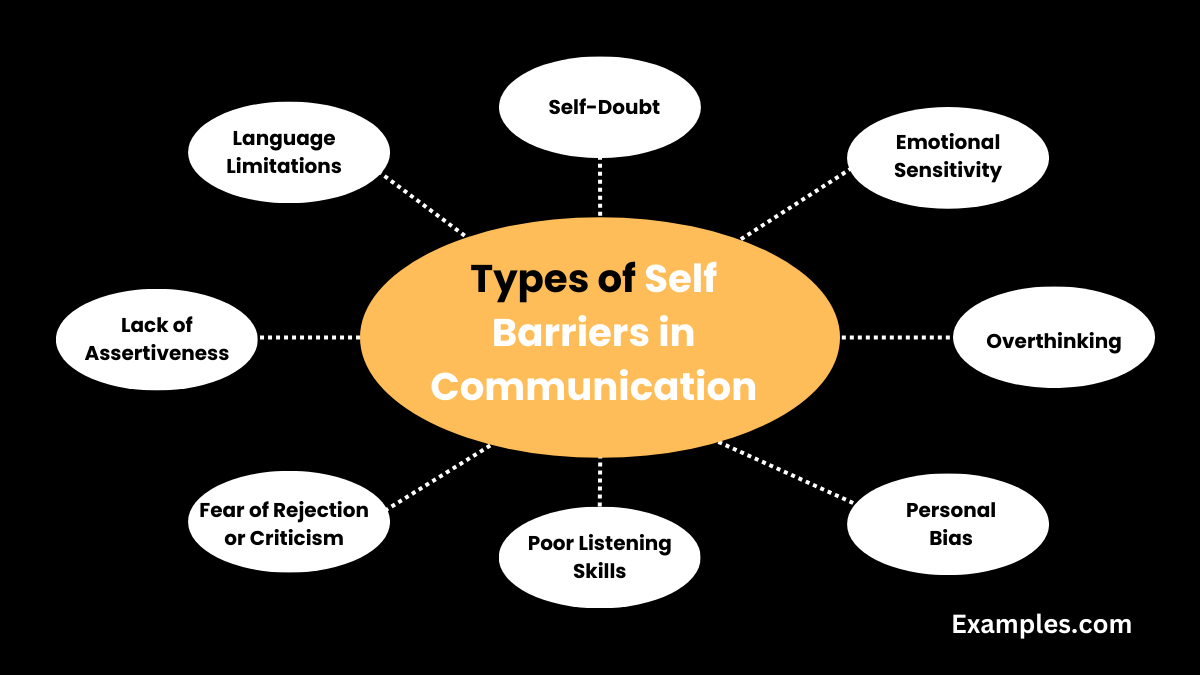
- Self-Doubt: Lack of confidence in one’s ability to communicate effectively.
- Emotional Sensitivity: Overreacting to criticism or feedback, leading to defensive communication.
- Overthinking: Over-analyzing situations or responses, which can hinder spontaneous and authentic communication.
- Personal Bias: Prejudices or preconceived notions that distort understanding and interpretation of messages.
- Poor Listening Skills: Not actively listening to others, leading to misunderstandings.
- Fear of Rejection or Criticism: Avoiding communication due to fear of negative feedback.
- Lack of Assertiveness: Difficulty in expressing thoughts and feelings openly and directly.
- Language Limitations: Inadequate vocabulary or grasp of language, leading to challenges in expressing oneself clearly.
Overcoming self-imposed barriers in communication is crucial for effective interpersonal interactions. By following the guide and tips provided, individuals can enhance their communication skills. Self-awareness, active listening, and empathy are key components to break down these barriers, fostering better connections with others. In essence, with practice and dedication, one can transform their communication abilities and build stronger relationships.



